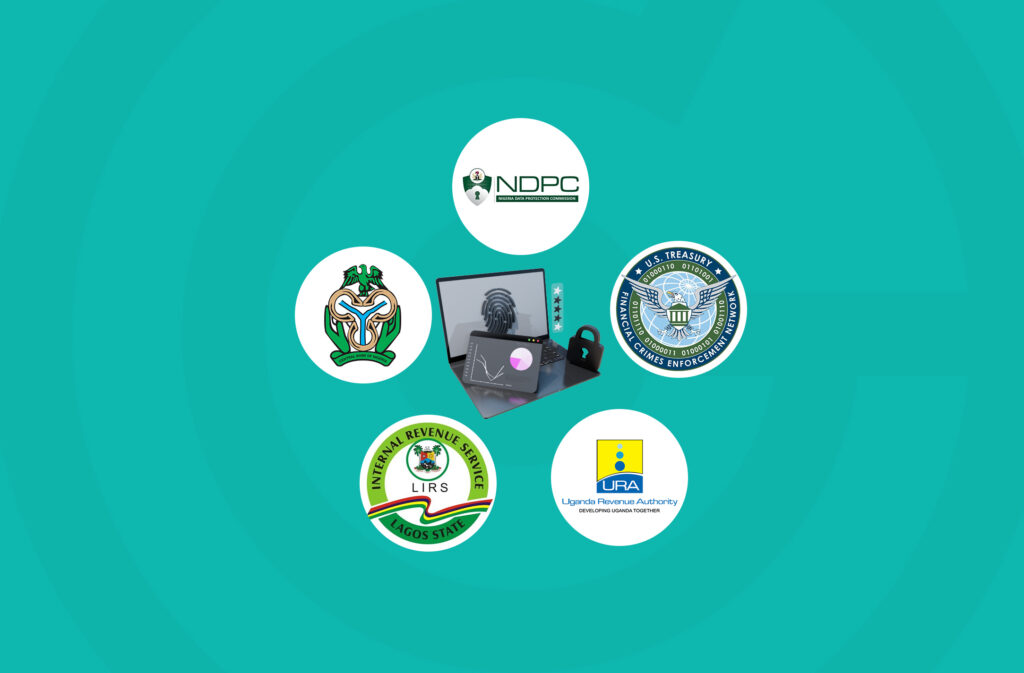
In the ever-evolving compliance landscape, recent announcements from central banks and revenue authorities shed light on significant developments that impact its landscape. In this compliance news blog post, we explore key updates from Nigeria, Uganda and the US, highlighting regulatory actions, reforms, and initiatives aimed at fostering transparency, trust, and efficiency in financial markets.
CBN’s New Policy: Exchange Rate Caps Eliminated and Market-based Limits Permitted.

The Central Bank of Nigeria (CBN) has announced a new policy that eliminates the initial cap on exchange rates quoted by International Money Transfer Operators (IMTOs). This move comes as a response to suspected cases of excessive foreign currency speculation and hoarding in Nigerian commercial banks.
The CBN now allows relevant parties to quote exchange rates for naira payouts to beneficiaries based on the current market rate at the Foreign Exchange Market. Transactions will now take place on a willing buyer, willing seller basis, which means that market forces of supply and demand will determine Nigerian exchange rates rather than the initial set limit.
This policy change is expected to make the Nigerian Foreign Exchange Market more transparent and encourage market-driven exchange rates. However, it may also have implications for the foreign exchange market in Nigeria, including the individuals and businesses that trade in it.
CBN Issues 24-Hour Ultimatum: Banks Urged to Liquidate Surplus Dollars, Driving Financial Agility.
In a decisive move on Wednesday, the Central Bank of Nigeria (CBN) unveiled stringent guidelines aimed at curbing the practice of hoarding and speculation of foreign currency by commercial banks.
This move comes in response to the CBN’s identification of foreign currency exposures of banks through their Net Open Position (NOP), allowing unnecessary hoarding.
To address these challenges, the CBN imposed prudential rules for banks, stating, “The Net Open Position (NOP) limit of the overall foreign currency assets and liabilities should not exceed 20% short or 0% long of shareholders’ funds unimpaired by losses.”
Banks exceeding these limits were given until February 1, 2024, to align with prudential norms. Non-compliance with the NOP limit carries immediate sanctions and potential suspension from participation in the foreign exchange market. This decisive action by the CBN reflects a commitment to instill discipline in the banking sector and ensure a transparent and stable foreign exchange market in Nigeria.
NDPC Exposes Cyber Threat Landscape: Investigating 17 Major Data Breach Cases in Nigeria, Recovers N400 Million in Pursuit of Justice.

In a groundbreaking revelation, the Nigeria Data Protection Commission (NDPC) declared an active investigation into 17 significant data breach cases spanning diverse sectors. Impressively, NDPC’s operations have not only safeguarded data but also contributed a remarkable N400 million to the government’s coffers.
This disclosure follows previous investigations into renowned entities like Zenith, GTB, Fidelity, Leadway Insurance, Babcock University, Opay, Meta, and DHL for alleged data breaches, showcasing Nigeria’s unwavering commitment to data protection and privacy.
Highlighting the sector’s growth, NDPC reported an increase in Data Protection Compliance Organizations from 103 to 163, leading to a surge in annual audit filings. Projections suggest a substantial revenue of about N6.2 billion, with approximately 10,100 jobs created in the sector.
The Lagos State Internal Revenue Service (LIRS} Extends Tax Filing Deadline: Employers Get One More Week Amidst Portal Downtime.

The Lagos State Internal Revenue Service (LIRS) has granted a one-week extension for employers’ annual tax returns, stretching the deadline to February 7, 2024. This benevolent move comes in response to recent downtime hiccups on the e-tax portal, ensuring businesses can meet their fiscal responsibilities without penalties.
The Uganda Revenue Authority (URA) Rendezvous: Shs6.8 Billion Collected in a Week through Digital Compliance Drive.

In a fiscal feat, the t (URA) has raked in a staggering Shs6.8 billion within a mere week of enforcing compliance with the Digital Tracking System (DTS) and the Electronic Fiscal Receipting and Invoicing Solution (EFRIS) in Kampala’s Central Business District (CBD).
The Financial Crimes Enforcement Network of the US Department of the Treasury (FinCEN) Drops Compliance Bombshell: U.S. Businesses Face Tight Deadlines for Disclosure of Beneficial Ownership Information.

In a pivotal move, the Financial Crimes Enforcement Network (FinCEN), a stalwart division of the US Department of the Treasury, released crucial details on Beneficial Ownership Information Reporting (BOI Reporting).
The inaugural BOI report must be filed by January 1, 2025, for those reporting companies in existence or registered before January 1, 2024. Meanwhile, entities created or registered between January 1, 2024, and January 1, 2025, have a grace period of 90 calendar days post-creation or registration to submit their BOI report.
When companies enter the scene on January 1, 2025, they must promptly file their BOI reports within 30 calendar days from the effective date of their creation or registration. To ensure a seamless transition to compliance, reporting companies are required to electronically submit their beneficial ownership information to FinCEN through a secure filing system.
Stay tuned for more compliance updates by visiting our website, and remember to stay compliant!
Last modified: March 26, 2024



